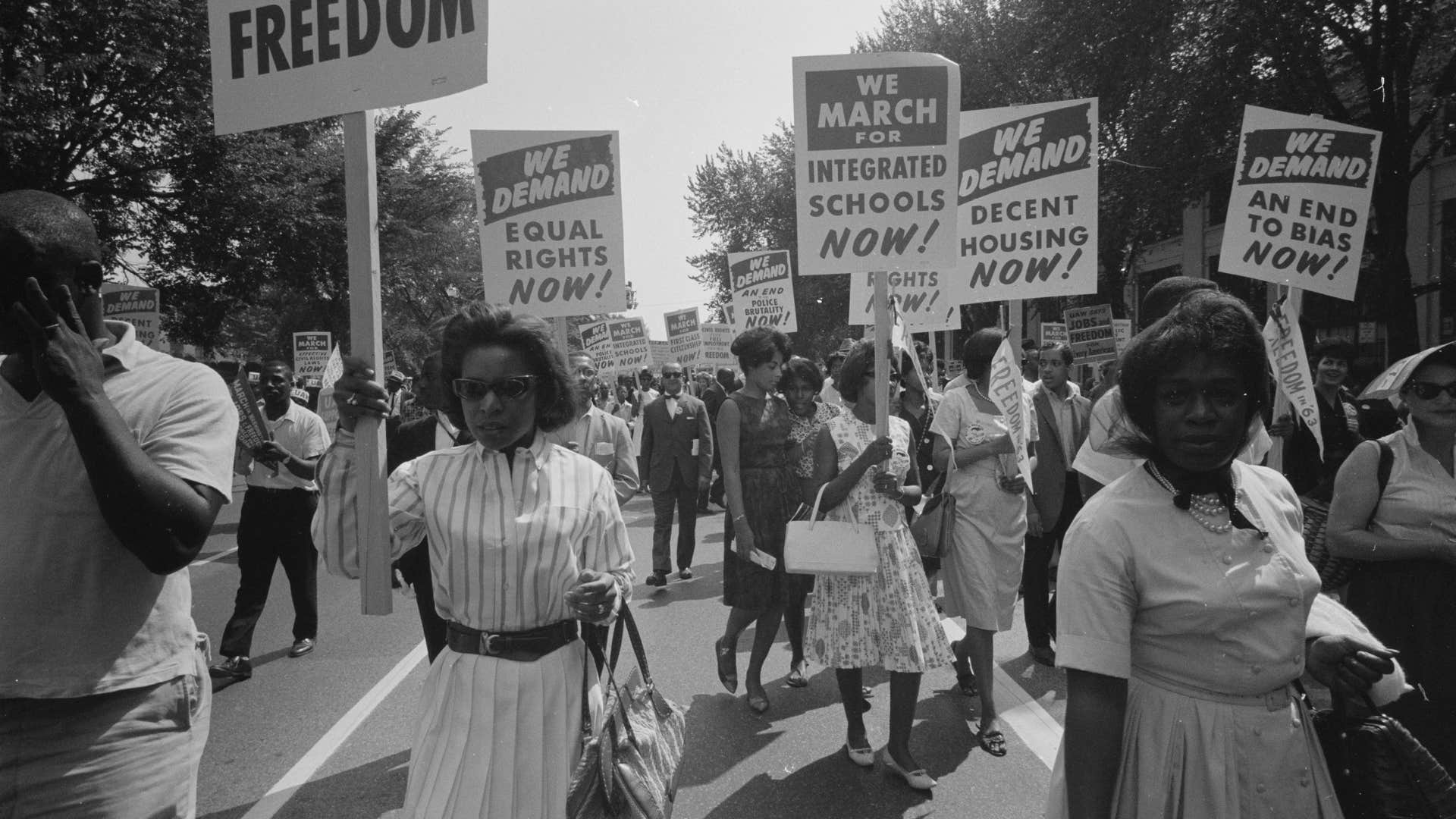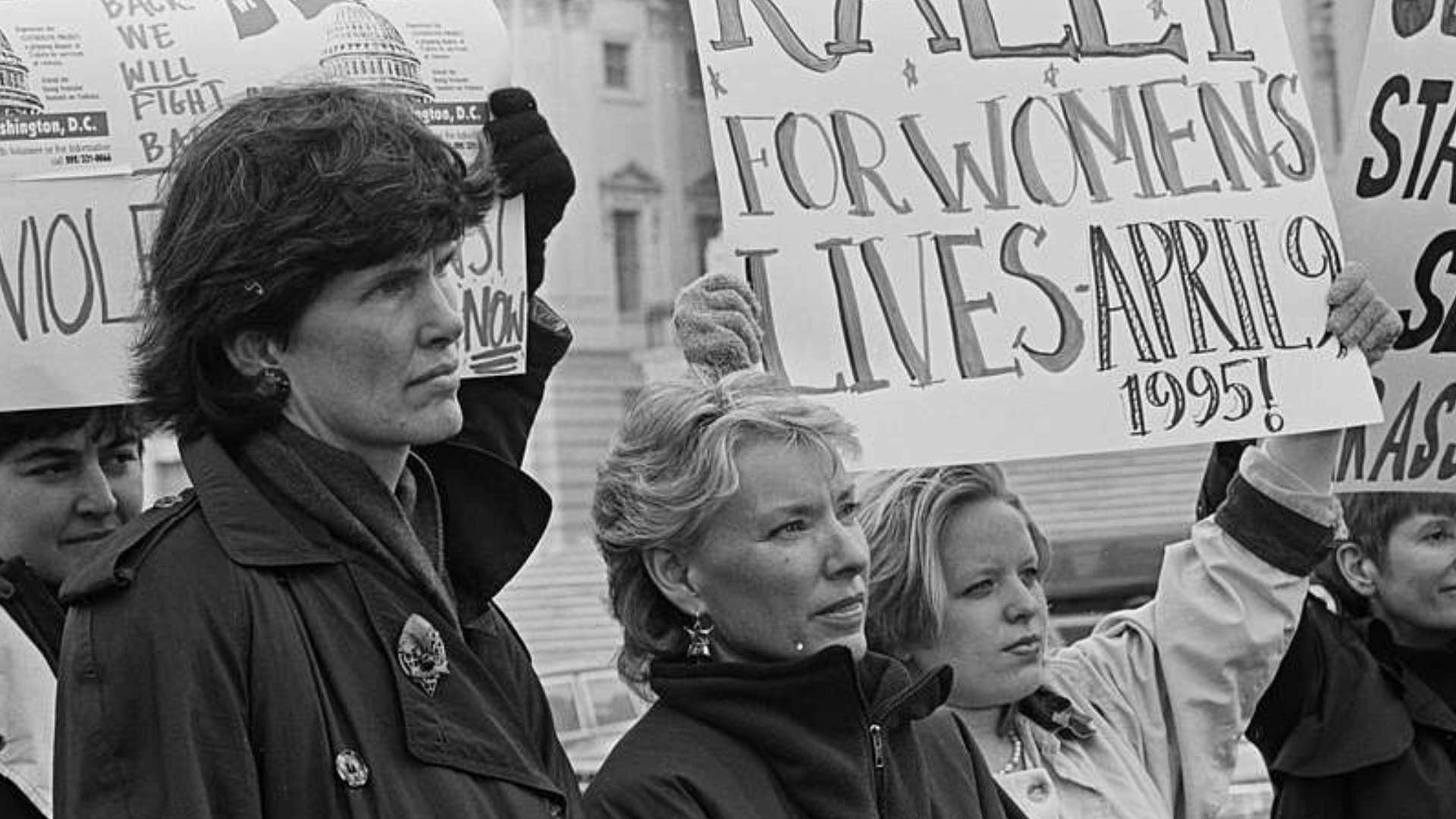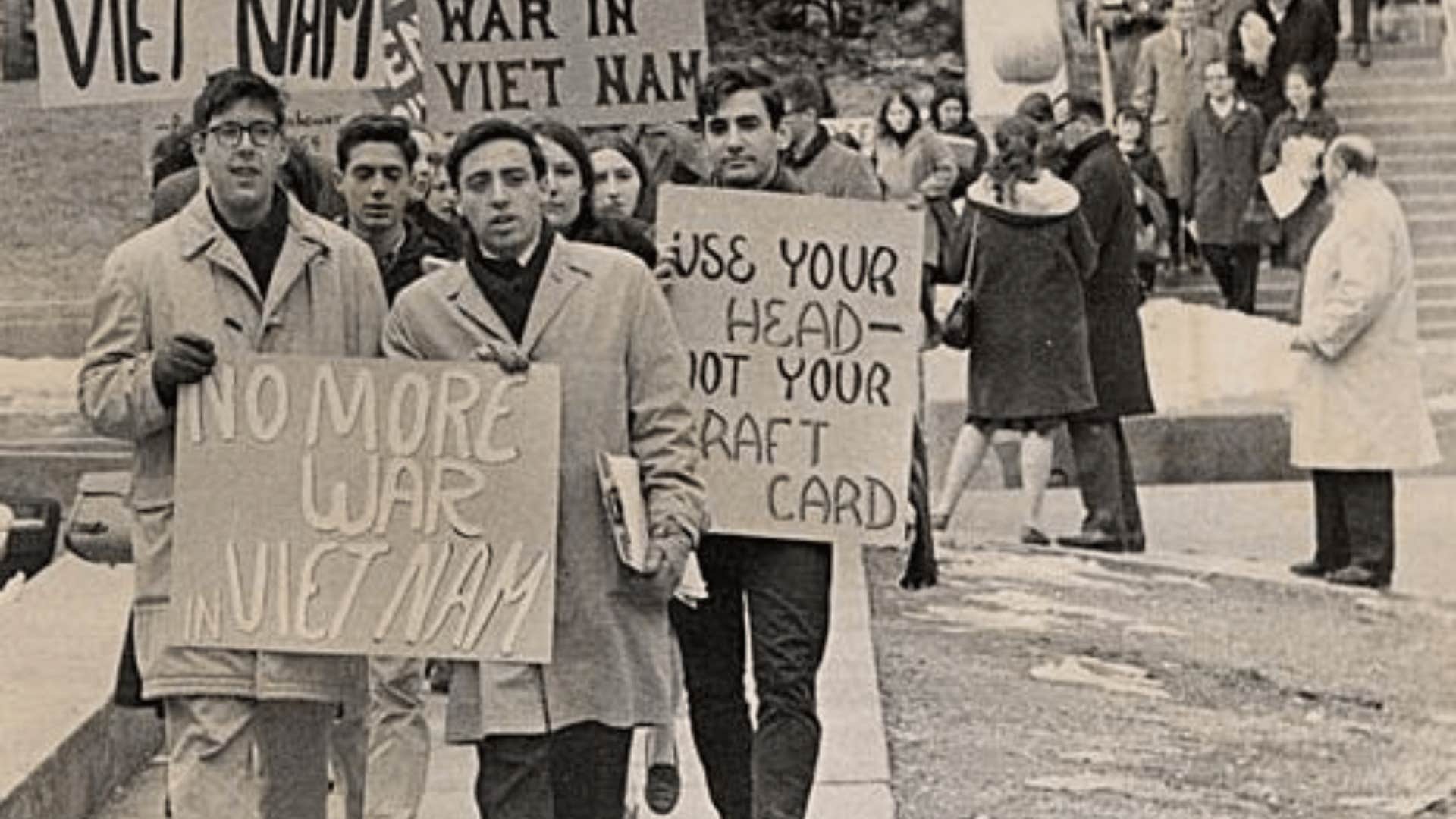11 Ways Boomers Were Way More Forward Thinking Than Anyone Gives Them Credit For
Instead of saying, 'OK, boomer,' you may want to say thank you.
 Ground Picture / Shutterstock
Ground Picture / Shutterstock As people get older, they tend to move further away from the traits that defined their younger years. They put more stock in tradition than they used to, and they often double down on their habits and perspectives.
They might be set in their ways now, but boomers were way more forward thinking than anyone gives them credit for. They were outspoken and politically active. They challenged the status quo and they cared about social change. Boomers paved the way for all the generations that followed.
Here are 11 ways boomers were way more forward thinking than anyone gives them credit for
1. They fought on the front lines of the civil rights movement
 Warren K. Leffler, Warren K. Leffler from Library of Congress CC0 Images
Warren K. Leffler, Warren K. Leffler from Library of Congress CC0 Images
While we tend to think of them as conservative now, boomers were way more forward thinking than anyone gives them credit for when they were younger, especially when it came to social change. As young adults, they advocated for equal rights and took their future into their own hands.
Black Americans, especially, mobilized and organized to fight for civil rights. They held the government accountable for injustices, leading various grassroots initiatives that put pressure on political leadership to actually enforce laws that had been passed for racial justice.
Several civil rights leaders who were the age of boomers' parents, like Rosa Parks and Martin Luther King, Jr, are famous for their historical impact, yet it’s incredibly important to acknowledge the many younger, unnamed Americans who were just as committed to the civil rights movement.
2. They questioned the government
 SeanShot from Getty Images Signature
SeanShot from Getty Images Signature
In their younger years, boomers’ lives were defined by significant social and political upheaval. They came of age during the Vietnam War and Watergate, both of which eroded their trust in the government.
In 1964, the National Election Study reported that 64% of Americans believed that the government was “run for the benefit of all the people.” By 1965, U.S. involvement in the Vietnam War escalated. Military deployment increased steadily until 1973, and by the end of the 70s, only 25% of Americans believed the government was run for everyone’s benefit.
In that era, boomers were outspoken and politically involved. They didn’t keep quiet about their disillusionment. They questioned the government outright and refused to accept the party line, which shaped their outlook on the world for years to come.
3. They championed equal rights for women
 GetArchive / public domain
GetArchive / public domain
When it comes to gender roles, boomers were way more forward thinking than anyone gives them credit for. Their participation in the feminist movement had a serious impact on the political sphere.
During the period known now as second wave of feminism, boomer women worked to establish several aspects of society that get taken for granted today, including ending gender-based discrimination through policies like parental leave, equal pay for equal work, Roe v Wade, and Title IX.
Boomer women fought hard for the right to work outside of the home, then broke the glass ceiling and took on leadership roles in jobs that were historically male. Even though gender inequity is still alive and well, boomers made waves and established necessary changes.
4. They were student activists
 uwdigitalcollections, CC BY 2.0, via Wikimedia Commons
uwdigitalcollections, CC BY 2.0, via Wikimedia Commons
As student activists, boomers were way more forward thinking than anyone gives them credit for. Their college experience extended beyond the classroom, as several protest movements gained traction on campuses across the U.S. Students organized sit-ins, strikes, and speeches, calling attention to their political goals.
One of the most significant student activist groups of the era was SNCC, the Student Nonviolent Coordinating Committee, which was founded and mentored by organizer Ella Baker. The start of SNCC represented the “first time [that] young people decisively entered the ranks of civil rights movement leadership.”
As Baker explained, young activists were “seeking to rid America of the scourge of racial segregation and discrimination — not only at lunch counters, but in every aspect of life.”
5. They raised awareness around environmentalism
 kayla89 via Canva
kayla89 via Canva
Boomers were at the forefront of the modern environmentalist movement. They were way more forward thinking than anyone gives them credit for, as they demanded that the government take action to protect the environment.
An article in the journal “One Earth” revealed that boomers’ approach to environmentalism was revolutionary for their time. As widely recognized as it is now, Earth Day started as a grassroots political movement led by boomers. The first Earth Day was held in 1970 as an environmental teach-in across 2,000 college campuses and 10,000 high schools. It was initiated by Senator Gaylord Nelson to raise awareness for environmental health concerns, including the damage caused by toxins in pesticides and other chemicals.
Environmentalism is currently a politically divisive issue, but when boomers were young, environmental protection unified the political parties. More environmental laws were passed in the late 60s and early 70s than any other time because of bipartisan efforts.
6. They built the tech industry
 kayla89 via Canva
kayla89 via Canva
As much as boomers embrace iPads and posting on Facebook now, they also had a big impact on the tech industry. Without boomers, there would be no internet as we know it today. Early inventions from several influential boomers paved the way for the technology that changed our lives.
In 1977, boomers Steve Wozniak and Steve Jobs created the Apple II personal computer, a close cousin to today’s computers. In 1989, Sir Tim Berner-Lee outlined a concept that led to the existence of the World Wide Web. He created a software language for web page development and invented the first web browser.
7. They were (and are) health-conscious
 kayla89 via Canva
kayla89 via Canva
When boomers were young, they helped bring holistic lifestyles into the mainstream. They popularized the macrobiotic food movement, yoga, and transcendental meditation across the U.S.
As they age, their focus on health and well-being hasn’t slowed down. According to Jody Holtzman, the Senior Vice President of Thought Leadership for the AARP, “today’s generation of baby boomers… are concerned with self-care and healthiness more than previous generations.”
In 2020, boomers held $2.6 trillion in buying power, and they put a significant amount of money into the self-care industry. They focused on products for healthy aging, including eye care, skin care, and heart health. Boomers spend more of their grocery budget on health and wellness products than any other generation. They remain deeply committed to their own well-being, and they’re living longer as a result.
8. They lived together before marriage
 kayla89 via Canva
kayla89 via Canva
Boomers pushed against social convention by living together before marriage. According to Pew Research Center, boomers approached marriage very differently than their parents did. Their parents married young in high numbers, but boomers didn’t marry at the same rate.
In 1970, almost 90% of 30-year-olds were married, yet that number has decreased significantly as time has passed. Americans are less likely to have married by age 30 now than in the past, a social trend that was influenced by boomers.
9. They reduced stigma around divorce
 kayla89 via Canva
kayla89 via Canva
The legal possibility of a no-fault divorce didn't exist until it was passed into state law in California in 1969, right as boomers were first beginning to get married. When they were young, then, divorce was easier to come by but still seriously stigmatized.
As they've gotten older, boomers have done their part to reduce that stigma. According to a study from the “Journal of Gerontology,” the divorce rate among people ages 65 and older tripled from 1990 to 2021. Boomers set the trend for late-in-life divorces, also known as “gray divorces.”
As researcher Susan Brown explained, “I’m increasingly confident this gray divorce revolution is being driven by baby boomers and is likely to be a phenomenon largely unique to them.”
By divorcing in their older years, boomers prove that it’s never too late to prioritize independence and inner peace.
10. They embraced non-traditional family life
 kayla89 via Canva
kayla89 via Canva
Boomers have done more than get divorced in their older age — they also entered the dating pool and even remarried. As a result, boomers are redefining what family means. They’re not only parents and grandparents, they’re step-parents and step-grandparents, too.
By embracing non-traditional family structures, boomers have shown that it really is love that makes a family.
11. They proved that life doesn’t end at retirement
 kayla89 via Canva
kayla89 via Canva
Boomers are living their best lives, proving that life doesn’t end at retirement. They’re exiting the workplace and embracing all the adventures still to come. They refuse to waste any time and they’re recommitting to themselves.
They might be in their silver years now, but they’re still living the gold standard.
Alexandra Blogier, MFA, is a staff writer who covers psychology, social issues, relationships, self-help topics, and human interest stories.

